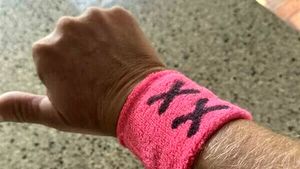Women in the U.S. make up only 5 to 20 percent of leadership roles across a broad range of disciplines, even though they now outnumber men in the college-educated labor force.
Three gender equity researchers, wondering why women are so often rejected for leadership roles, shed light on the criticisms women leaders face in their recent study.
In their research, Amy Diehl, Leanne M. Dzubinski, and Amber L. Stephenson compared the experiences of women in leadership across four industries. They found that women were often seen as "never quite right" for their roles.
"Virtually any characteristic can be leveraged against a woman in a discriminatory fashion," the researchers wrote for Fast Company. "Such criticisms often relate to facets of women’s identity in an overt or subtle way, such as race, age, parental status, attractiveness, and physical ability."
The study saw ageism as an especially consistent issue; respondents reported that they were considered "too young" to lead, or "too old" to advance in their careers. But being in the middle wasn't quite right, either. "I am middle-aged, and men my age are seen as mature leaders and women my age as old," one physician said.
Women of color also reported that they faced racial bias. The researchers recalled how a Filipina respondent described that she was often mistaken for a nurse, despite being the doctor managing her division.
Sociologist Adia Harvey Wingfield described similar experiences among Black women. "Nearly every Black woman doctor with whom I spoke shared accounts of being mistaken for a nurse rather than a doctor, so much so that they argued that when it came to their everyday interactions, gender was a much more significant factor than race," Wingfield wrote for The Brookings Gender Equality Series.
Wingfield added that gender biases occurred in the context of "structural, racialized barriers", making advancement doubly difficult for Black women doctors.
Asian American women are also held back by gender and racial prejudices in the corporate world, as sociologist Margaret M. Chin describes in her book, Stuck: Why Asian Americans Don't Reach the Top of the Corporate Ladder. Informed by interviews with second-generation Asian Americans, her book provides insight into the discrimination that Asian American women face in the workplace, including sexual harassment, mistrust, and a lack of mentorship.
“Even in 2023, women still face challenges to their authority and success that are greater than those faced by their male counterparts,” said Northwestern University professor Alice Eagly, via the American Psychological Association. “However, despite these difficulties, women are slowly rising in political leadership and in corporate and educational leadership.”


















































